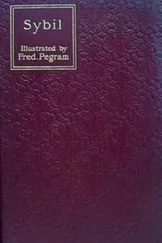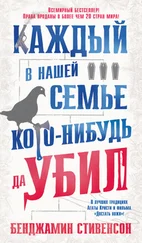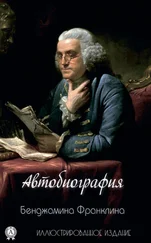‘Do you mind if I –?’ She had a sturdy leather tote bag on one shoulder and an armful of books.
‘No,’ said Daniel, looking up as if he hadn’t noticed her until now before leaping into action. He cleared a squashed can of Coke and the snakeskin of a straw wrapper, as well as a red plastic basket filled with the detritus of his sandwich: blobs of pork fat and maroon sauce. ‘Of course not.’
‘Thanks,’ said the woman, in a businesslike tone. She sat down diagonally from Daniel, extracted a notebook and pencil case, and began to work.
Daniel was puzzled. It seemed she wanted nothing to do with him. Of course, she might have had other reasons for choosing this table: its distance from the buffet, or the fact that it was next to the windows, in a rare patch of Chicago sun.
He searched his backpack for a book and studied her out of the corner of his eye. She was petite but not thin, with a round face that tapered to a slender, shapely chin. She had elegant, furry brows and chestnut-colored eyes with surprisingly pale lashes. Her skin was olive toned and scattered with freckles. Straight brown hair hung to her collarbones.
The clock ticked toward three thirty, then four. At four fifteen, he cleared his throat. ‘What are you studying?’
The woman had a blue and silver Sony Walkman in her lap. She pulled off her headphones. ‘What’s that?’
‘I was just wondering what you study.’
‘Oh,’ she said. ‘Art history. Jewish art.’
‘Ah,’ said Daniel, raising his eyebrows and smiling in what he hoped was an interested-seeming way, though the subject did not interest him very much.
‘Ah. You disapprove.’
‘Disapprove? God, no.’ Daniel flushed. ‘You’re entitled to study whatever you like.’
‘Thank you,’ she said, deadpan.
Daniel reddened. ‘I’m sorry. That sounded patronizing. I didn’t mean it like that. I’m Jewish,’ he added, in solidarity. The woman looked at the remainder of his sandwich. ‘Ancestrally.’
‘You’re pardoned, then,’ said the woman, but she smiled. ‘I’m Mira.’
‘Daniel.’ Should he shake her hand? He wasn’t usually so awkward around women. He smiled back instead.
‘So,’ said Mira. ‘You’re no longer religious?’
‘No,’ he admitted.
As a kid, Daniel was soothed by the synagogue: the bearded men with their silk shawls and rituals, the honeyed apples and bitter herbs, the praying. He developed a private prayer that he repeated each night with faithful exactitude, as though one botched phrase would cause something terrible to befall him. But terrible things did befall him: the death of his father, then of his brother. Shortly after Simon’s passing, Daniel stopped praying entirely. He was not troubled by his abandonment of religion. After all, there had been no struggle. His belief went willingly, logically, the way the boogeyman disappeared once you looked under the bed. That was the problem with God: he didn’t hold up to a critical analysis. He wouldn’t stand for it. He disappeared.
‘You’re a man of few words,’ said Mira.
Something in her tone made him laugh. ‘It’s just that – well, talk of religion . . . it can make people uncomfortable. Or defensive.’ In case Mira herself was becoming defensive, he added: ‘I do see a lot of value in religious tradition.’
Her head was inclined with interest. ‘Like what?’
‘My father was devout. I respect my father, and so I respect what he believed in.’ Daniel paused to collect his thoughts; he had never articulated them before. ‘In a way, I see religion as a pinnacle of human achievement. In inventing God, we’ve developed the ability to consider our own straits – and we’ve equipped Him with the kind of handy loopholes that enable us to believe we only have so much control. The truth is that most people enjoy a certain level of impotence. But I think we do have control – so much that it scares us to death. As a species, God might be the greatest gift we’ve ever given ourselves. The gift of sanity.’
Mira’s mouth made a little upside-down semicircle. Soon, that expression would become as familiar to Daniel as her small, cool hands or the mole on her left earlobe.
‘I track pieces of Nazi-stolen art,’ she said, after a moment. ‘And what I’ve noticed is just how far each object travels. Take Van Gogh’s Portrait of Dr. Gachet . It was painted in 1880 in Auvers-sur-Oise about a month before Van Gogh committed suicide. The work changed hands four times – from Van Gogh’s brother to his brother’s widow to two independent collectors – before it was acquired by the Städel in Frankfurt. When Nazis plundered the museum in 1937, it was seized by Hermann Göring, who auctioned it off to a German collector. But here’s where things get interesting: that collector sold it to Siegfried Kramarsky, a Jewish banker who fled the Holocaust for New York in 1938. It’s remarkable, isn’t it? That the painting wound up, after all that, in Jewish hands, and directly from a Göring associate?’ Mira fingered her headphones. She seemed suddenly shy. ‘I suppose I think we need God for the same reason we need art.’
‘Because it’s nice to look at?’
‘No.’ Mira smiled. ‘Because it shows us what’s possible.’
It was exactly the sort of comforting notion Daniel had long ago rejected, but he was drawn to Mira despite it. That weekend, they drank wine and listened to Paul Simon’s Graceland on a boom box Mira wedged in the open window of her third-floor walk-up. When she put her hands in the back pockets of his jeans and pulled him close, Daniel felt such bliss that it almost embarrassed him. He had not realized how lonely he was, or how long he’d been lonely.
At his wedding, when he looked into the audience and saw only Gertie and Varya, something snapped in his heart like a branch. That Klara and Mira had never met remained one of the biggest regrets of his life. Mira was eminently practical and Klara was certainly not, but they shared an arch sense of humor and an air of playful – sometimes, not so playful – challenge. He didn’t know how much he relied on his sister for this purpose until he met his wife. During the breaking of the glass, he imagined his life until now shattering, too: its ignorance and anguish, its great and petty losses. From the pieces, he would assemble something new with Mira. He looked into her bright, hazel eyes, shimmering beneath a layer of tears, and felt his soul relax as if into a warm bath. So long as he kept looking at her, that feeling of peace pulsed outward, pushing pain to the perimeter of his consciousness.
Later, lying naked with his bride – Mira snored, her forehead damp on his chest – Daniel began to tremble. He prayed. The words came forth as naturally, as necessarily, as urine. (A terrible analogy, he knew – Mira would have been horrified, had he shared it – and yet it still seemed to him more fitting than the inflated metaphors he’d heard in childhood.) Please, God , he thought. Oh God, may this last.
In the following weeks, when he remembered the prayer, Daniel felt bashful, but also, somehow, lighter; it was as though he’d cut a lock of hair. He had not thought religion could do this for him. Truthfully, the seeds of his atheism had been sown years before the deaths of Klara and Simon and Saul. It began with the woman on Hester Street. He had felt such shame at his paganism, his desire to know the unknowable, that his shame became repudiation. No one, he vowed, could have such power over him: no person, no deity.
But perhaps God was nothing like the dreadful, lurid fascination that brought him to the fortune teller, nothing like her preposterous claims. For Saul, God had meant order and tradition, culture and history. Daniel still believed in choice, but perhaps that did not foreclose belief in God. He imagined a new God, one who nudged him when he was going the wrong way but never strong-armed him, one who advised but did not insist – one who guided him, like a father. A Father.
Читать дальше
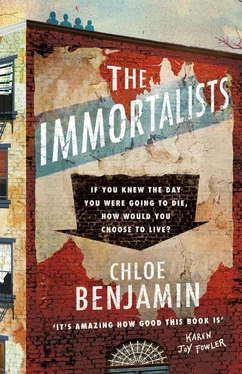

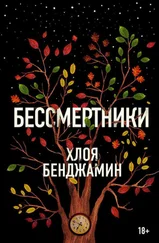

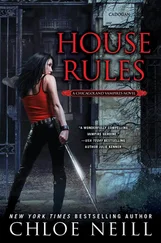
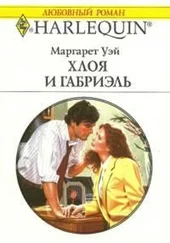
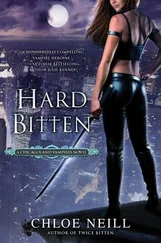

![Мелани Бенджамин - Госпожа отеля «Ритц» [litres]](/books/384861/melani-bendzhamin-gospozha-otelya-ritc-litres-thumb.webp)
